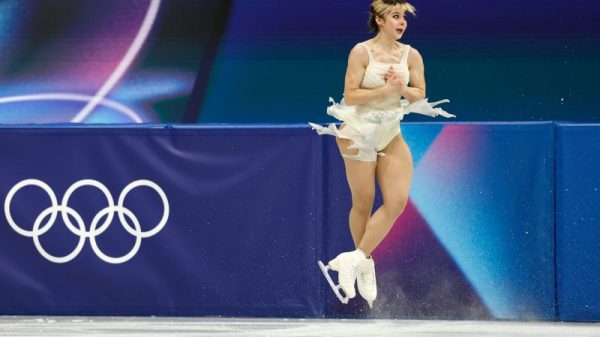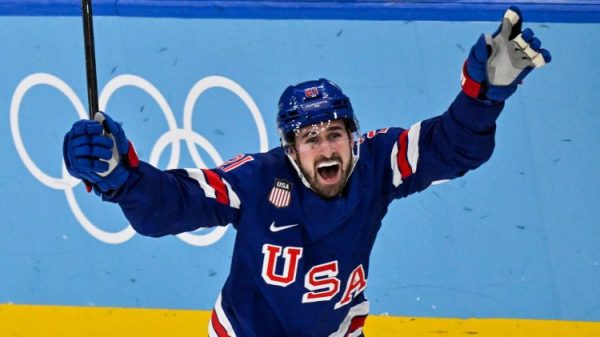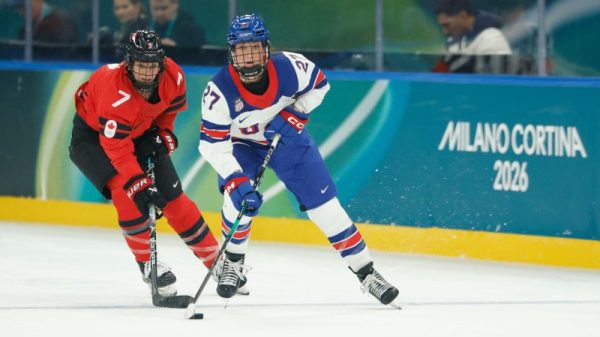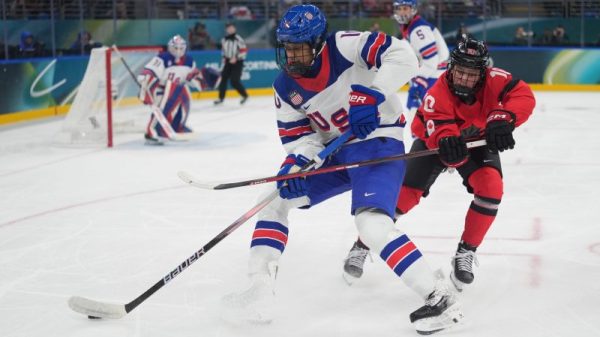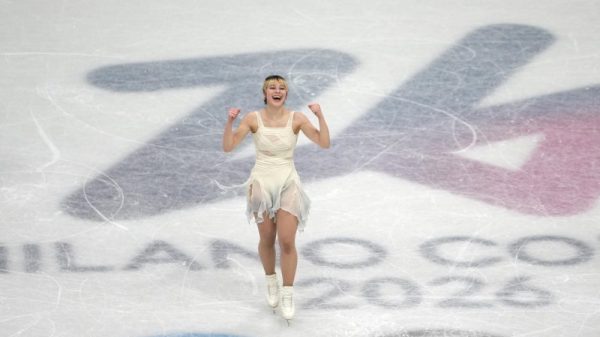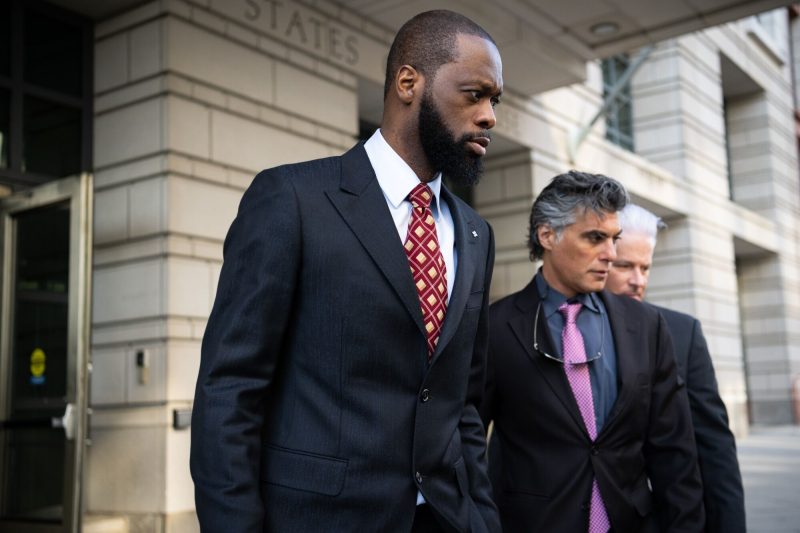Prakazrel “Pras” Michél, who found meteoric fame in the 1990s as a member of the short-lived, Grammy Award-winning hip-hop trio the Fugees, was convicted Wednesday of 10 federal crimes for his role in a tangle of conspiracies involving money laundering, campaign finance violations, illegal lobbying and witness tampering.
After deliberating for two days, a jury in U.S. District Court in Washington found Michél guilty of all the charges against him, including lying to banks, in a convoluted case arising tangentially from one of the world’s biggest financial scandals: the looting of $4.5 billion from Malaysia’s sovereign wealth fund.
The 50-year-old former rap star, who sat impassively as the verdicts were announced, was not accused of participating in the gargantuan theft. The charges he faced stemmed from his association with the alleged architect of the embezzlement, a wild-spending, lavish-partying Malaysian financier named Low Taek Jho, who is a fugitive from justice.
In his dealings with Low, prosecutors said, Michél netted more than $100 million through criminal conspiracies stretching from Malaysia to Washington, from Thailand to Hollywood.
No sentencing date has been set. Some of the offenses he was convicted of are punishable by up to 20 years in prison, but under advisory federal sentencing guidelines, Judge Colleen Kollar-Kotelly probably will impose a shorter prison term.
“We are of course very disappointed,” defense attorney David Kenner said outside the courthouse as his lanky, bearded client stood silently beside him. “We will certainly appeal this case. This is not over. I remain very, very confident that we will prevail in this matter.”
In testimony beginning March 30, the jurors, via witness accounts, were taken on kaleidoscopic trips to rarefied places — to outlandishly extravagant parties with the rich and famous in Las Vegas and other hot spots; to the inner cloisters of the White House and the Justice Department; and to a secret overseas meeting between a top Chinese domestic security official and an admitted multimillion-dollar U.S. influence peddler.
“It is not complicated,” prosecutor Sean F. Mulryne told the panel in his closing argument. “At its core, it is simple and straightforward: Mr. Michél broke the law.”
For a “simple and straightforward” case, however, the sprawling narrative that unfolded during the trial featured dizzying sums of illicit cash, in the eight and nine figures; a labyrinth of alleged conspiracies involving campaign finance violations and illegal lobbying; and a head-spinning cast of characters, from A-listers to no-listers, in the worlds of entertainment and government.
Leonardo DiCaprio, one of Hollywood’s most bankable stars, took the witness stand. In a somewhat less captivating appearance, former attorney general Jeff Sessions also addressed the jury. Others whose names came up repeatedly in testimony span the spectrum of cultural achievement, from filmmaker Martin Scorsese to reality TV maven Kim Kardashian, and dot the hierarchy of Washington power, from former presidents Barack Obama and Donald Trump to campaign money bundlers familiar mainly to just the Beltway cognoscenti.
Along with Michél, the trial focused on his absent co-defendant, known to his friends as “Jho Low,” who investigators believe is in China.
Starting in the 2000s, authorities said, Low orchestrated the theft of $4.5 billion from Malaysia’s sovereign wealth fund and embarked on a cartoonishly lavish lifestyle in the United States. Over eight months in 2009 and 2010, for example, “Low and his entourage spent $85 million on alcohol, gambling in Vegas, private jets, renting superyachts, and to pay [Playboy] Playmates and Hollywood celebrities to hang out with him,” journalists Tom Wright and Bradley Hope wrote in a book about the Ivy League-educated party boy.
Prosecutors said Low, now 41, used part of his embezzled fortune to finance the Scorsese-directed film “The Wolf of Wall Street,” which cost $100 million. DiCaprio, who made the production deal in 2012 and starred in the Oscar-nominated movie, testified that he thought his then-buddy “Jho Low” was a legitimate, uber-successful businessman. DiCaprio, who jetted to parties around the globe with Low, has not been accused of wrongdoing, nor has Scorsese.
The gamut of celebrities, current and past, with whom the free-spending financier cultivated relationships came to include Michél, whose solo music career waned after the Fugees broke up in 1997. Michél, who reinvented himself as a documentary producer and business entrepreneur, told the jury he was introduced to Low at a Manhattan nightclub bash in 2006. Then, in 2012, he testified, Low contacted him for help, knowing that Michél was a passionate Obama supporter who had met the president.
Low, who had seemingly unlimited cash to finance his celebrity obsession, wanted a photograph of himself with Obama, and he paid Michél $20 million to make it happen, the former rap star testified. In June 2012, Michél said, he discussed the matter with millionaire businessman Frank R. White Jr., a top campaign-contribution bundler for Obama’s reelection bid. Michél said he was given to understand that he should buy tickets to fundraising dinners, at $40,000 apiece, as a step toward Low getting his coveted photo.
All told in 2012, Michél tapped the $20 million to buy $865,000 in tickets to Obama events, mostly in other peoples’ names (so-called “straw donors”) to avoid individual contribution limits, according to prosecutors. In addition, they said, Michél donated $1.1 million in his own name to an Obama political action committee, also drawing on the funds he had received from the Malaysian money man.
That amounted to roughly $2 million in donations. Michél testified that he pocketed the rest of the $20 million because he considered all of the money to be legitimately his — a payment from Low for the job of arranging the photo. He said the “straw donors” were friends of his who bought tickets with money he gave them.
But prosecutors argued that the donations were unlawful “conduit contributions” originating with Low, meaning that Michél illegally funneled about $2 million from a foreign national (embezzled money, in this case) into a U.S. presidential campaign. “It directly traces back to Jho Low,” Mulryne told the jury. Before Low gave him the $20 million, Mulryne said, “Mr. Michél did not have sufficient funds in his account to make these contributions.”
Kenner, the lead defense attorney, scoffed at the government’s allegations in his closing argument.
“Mr. Michél did not willfully and deliberately funnel campaign contributions,” Kenner said. “He was trying to make money, a lot of money,” by working for Low to set up a photo opportunity. “And you know what? … It is not illegal to make money.”
Referring to the object of Low’s desire, Kenner said, “Call it a trophy photograph. … He was a man with the money and wherewithal to spend any amount of money to get it. This $20 million to him was nothing” — yet to Michél, who was transitioning from a recording career to new business ventures, “it was incredible.” Because the payment “belonged to him and him alone,” Kenner told the jury, Michél “used what he believed to be his money to get Jho Low this $20 million photograph.”
Actually, Low wound up paying twice that much, Michél testified. He said he and White, the Obama money bundler, traveled to Las Vegas in late 2012 for a star-studded, multimillion-dollar birthday party Low threw for himself. At that point, Low still had not gotten his photo. Michél said Low gave White $20 million to arrange for the picture, bringing the total cost to $40 million. He finally got his photo taken with the president at a White House Christmas event.
White invoked his Fifth Amendment right against self-incrimination and declined to testify at Michél’s trial.
By 2017, Low was under investigation in the United States and elsewhere for his alleged involvement in looting Malaysia’s sovereign wealth fund, known as 1MDB, and he again turned to Michél for help, according to prosecutors. Businesswoman Nickie Mali Lum Davis, an acquaintance of Michél’s, introduced him to an associate of hers, Elliott Broidy, a top Republican fundraiser with close ties to the Trump administration. A prosecutor described Broidy as “the fixer” whom Low secretly hired to get him out of legal trouble.
Broidy testified that, after meeting with Low in Thailand, he tried in vain to sway various administration officials into believing it would harm U.S.-Malaysia relations for the Justice Department to continue its 1MDB-related investigations. In a deal brokered by Michél, Broidy said, Low agreed to pay him $50 million or $75 million, depending on how quickly he was able to quash the probes.
He said he even asked Trump to join then-Malaysian Prime Minister Najib Razak for a round of golf, and Trump agreed. Broidy said this would have been a chance for Razak — who has since been imprisoned in Malaysia for his role in the 1MDB embezzlement — to downplay the significance of the scandal. But White House officials stopped the golf outing from happening, Broidy testified.
As the illegal lobbying effort evolved, Broidy told the jury, he met again with Low, this time in China, along with Michél, Davis and a top Chinese domestic security official. Broidy said Low seemed to think that Chinese authorities could help him with his legal problems. In return, the security official wanted Broidy to use his influence in the Trump administration to secure the extradition of a wealthy Chinese national, Guo Wengui, an outspoken critic of China’s government who was living in New York under a temporary visa.
Broidy said the official promised that if Guo was deported, China would release detained U.S. citizens and possibly enter into a new cooperation agreements with the United States. But back in Washington, Broidy failed in his intense lobbying campaign to have Guo extradited. Davis eventually pleaded guilty to conspiring to violate the Foreign Agents Registration Act, or FARA. After Broidy pleaded guilty to the same offense, Trump pardoned him.
As for Michél, he got tens of millions of dollars from Low for his lobbying efforts, according to prosecutors, who said his total take, dating to 2012, exceeded $100 million.
Michél testified that he did not know it was illegal to lobby for foreign nationals without registering with the U.S. government. Kenner argued that because his client “was not willful and was not deliberate” in violating the law, he should be acquitted. “The government’s case under FARA is a house of cards,” he told the jury.
But Mulryne said the former rap star conspired “to sell out our democracy” for a pilfered foreign fortune. “He was greedy,” the prosecutor said. “He wanted money, and he got it.”






